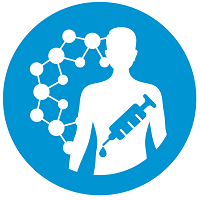Preclinical, Clinical, and Translational Sciences
Hot Topic: New Technologies and Approaches for Translation to Clinical Practice
-

Seeprarani Rath, Ph.D.
Post Doc
Rutgers - The State University of New Jersey
Piscataway, New Jersey -

Colin Castleberry, PhD (he/him/his)
Principal Scientist
Amgen
South San Francisco, California -

Rodrigo Cristofoletti, PhD (he/him/his)
Assistant Professor
University of Florida
Orlando, Florida -
.jpg)
Eshita Khera, PhD (she/her/hers)
Principal Scientist II
Novartis
Cambridge, Massachusetts
Hot Topic Moderator(s)
Hot Topic Speaker(s)
Successful transition from preclinical research to clinical trials is highly driven by accurate prediction of safe and efficacious exposure ranges, and in vitro and in silico methods have advanced tremendously to support these predictions. This panel discussion brings together key stakeholders, including therapy developers, technology providers, and regulators, to explore the latest advances, evolving requirements and potentials for in vitro and in silico models in drug discovery and development to inform and predict clinical success.
Panelists will examine cutting-edge technologies that improve the predictive power of these models, aiming to reduce reliance on in vivo studies and enhance translational success. A primary focus will be nephrotoxicity, a major barrier in both large and small molecule-based drug development, with discussions on how early-stage detection using advanced in vitro systems can mitigate risks and improve clinical outcomes. Another primary focus will be T-cell engager therapies, for which preclinical-to-clinical translation of exposure-response and exposure-toxicity relationships remain as key challenges in clinical development. Special attention will also be given to gene therapies where robust and personalized in vitro models can be critical for assessing safety and efficacy before clinical translation.
Regulators will provide insights into their expectations for in vitro data, shedding light on evolving regulatory frameworks and the need for standardized methodologies. The panel will explore how we are at a critical moment in NAMs regulations and advancements where cross-sector collaboration is critical to drive the adoption of best practices, ensuring that in vitro models effectively support decision-making in therapy development.
By bridging scientific innovation with regulatory expectations, this session aims to identify pathways for accelerating the safe and efficient progression of compounds into clinical trials, ultimately improving patient outcomes and reducing drug attrition rates.
Learning Objectives:
- Confidently evaluate the options they have with regards to in vitro or in vivo models to use when planning their translational research.
- Demonstrate understanding of expectations of regulators when considering in vitro models in their preclinical work.
- Identify industry points of contacts and reference examples of companies and associations to support successful progression of pre-clinical research into first in human trials.
- Understand in silico methods that best leverage in vitro and in vivo data to make key predictions to inform clinical success.


